Introduction: A Historic Bid for Unity
The 2030 FIFA World Cup is poised to make history, being the first of its kind to be hosted across two continents—Europe and Africa—by Morocco, Spain, and Portugal. This unprecedented tri-nation bid symbolizes not just a sporting event but a bridge between cultures, continents, and communities. In this comprehensive exploration, we delve into the essence of this unique collaboration, highlighting its significance, the preparatory challenges, and the anticipated global impact.
Historical Context and Significance
The Evolution of World Cup Host Selections
The FIFA World Cup showcases athletic prowess and the host country’s cultural, social, and economic achievements. Over decades, the selection process evolved, favoring bids demonstrating logistical capacity and the ability to unite diverse populations under sport’s banner. The 2030 bid by Morocco, Spain, and Portugal marks a significant milestone in World Cup history.
Historically, the World Cup has been hosted by a single country, except for the 2002 tournament shared by Japan and South Korea. Awarding the 2030 World Cup to three countries across two continents is a bold step, highlighting FIFA’s commitment to promoting global unity and cooperation.
A Bridge Between Continents
The tri-nation bid is particularly noteworthy for its geographical and cultural implications. Morocco, with its rich history and strategic location on the African continent, offers a gateway to Africa for the tournament. Meanwhile, Spain and Portugal, with their deep-rooted football traditions and modern infrastructure, represent Europe’s passion for the game. This blend of locations promises a World Cup that is not only a celebration of football but also a festival of intercontinental unity and cultural exchange.
Preparatory Challenges and Opportunities
Infrastructure and Logistics
The tri-nation World Cup poses unique challenges, especially in infrastructure and logistics. Coordinating teams, officials, and fans between Morocco, Spain, and Portugal demands meticulous planning and significant investment. Yet, it’s also an opportunity for these nations to showcase their hosting capabilities and enhance tourism and global image.
The Role of Technology in Overcoming Challenges
Advancements in transportation and communication technology will play a crucial role in addressing these logistical challenges. High-speed rail links, efficient air travel routes, and digital platforms for ticketing and accommodation are just a few areas where innovation can smooth the path for a successful tournament. Additionally, the use of smart city technologies can enhance the experience for visitors and locals alike, ensuring safety, sustainability, and enjoyment throughout the event.
Economic and Cultural Impacts
Boosting the Local Economy
The 2030 FIFA World Cup is expected to have a significant economic impact on Morocco, Spain, and Portugal. The influx of tourists and the global attention will stimulate local economies, creating jobs and boosting various sectors such as hospitality, transportation, and retail. The event provides a golden opportunity for these countries to showcase their culture, cuisine, and landmarks to a worldwide audience, potentially increasing tourism in the years following the World Cup.
The graph presents the expected economic impact of hosting the 2030 FIFA World Cup across Morocco, Spain, and Portugal. It provides a detailed comparison of the anticipated increase in tourism, job creation estimates, and infrastructure investment for each host country.
Table: Economic Impact Forecast
| Country | Expected Increase in Tourism | Job Creation Estimate | Infrastructure Investment |
| Morocco | 10% | 20,000 | $1.5 Billion |
| Spain | 5% | 15,000 | $2 Billion |
| Portugal | 7% | 10,000 | $1 Billion |
Cultural Exchange and Global Visibility
This World Cup is more than a football tournament; it’s a platform for intercultural exchange. It will bring together fans from around the world, allowing them to experience the rich history and diversity of Morocco, Spain, and Portugal. This event is a unique opportunity to promote understanding and unity among different cultures, reinforcing the idea that football is truly a global language.
Sustainability and Environmental Considerations
Innovative Approaches to Sustainability
With the world’s eyes on them, the host countries are committed to making the 2030 World Cup a model for sustainability. Initiatives include:
Eco-friendly stadiums: Utilizing renewable energy sources, rainwater harvesting, and sustainable materials.
Reducing carbon footprint: Encouraging public transport, car-sharing, and the use of electric vehicles.
Legacy projects: Ensuring that infrastructure projects have long-term benefits for the community.
Challenges and Solutions for Sustainable Hosting
Hosting a sustainable World Cup requires careful planning and collaboration. The challenges include minimizing waste, managing water resources efficiently, and ensuring that the event’s carbon footprint is as low as possible. Solutions involve innovative green technologies and international partnerships focused on sustainability.
For Further Reading:
The Geopolitical Landscape
Strengthening International Relations
The joint bid for the World Cup is a testament to the strong diplomatic relations between Morocco, Spain, and Portugal. This collaboration highlights how sports can bridge divides and foster positive relationships between nations. The tournament is expected to strengthen ties not only between the host countries but also with nations around the globe, promoting peace and cooperation.
Morocco’s Strategic Position
Morocco’s role as a host is particularly significant, highlighting its growing influence on the global stage. The country’s strategic location as a bridge between Africa and Europe, along with its stable political environment, makes it an ideal partner in this historic endeavor.
For Further Reading:
Understanding the geopolitical significance of Morocco: The Geopolitics of Morocco
The Role of Fan Engagement and Digital Innovation
Enhancing Fan Experience Through Digital Platforms
In the era of digital connectivity, the 2030 FIFA World Cup is set to leverage technology to enhance fan engagement and experience. With initiatives like virtual reality (VR) tours of stadiums, augmented reality (AR) games, and real-time interactive apps, fans from around the world will enjoy an immersive experience, whether they’re attending the matches in person or watching from home. These digital innovations not only enrich the fan experience but also ensure inclusivity, allowing everyone to feel part of the excitement.
Key Digital Innovations for the 2030 World Cup
Virtual Reality Stadium Tours: Offering fans a 360-degree view of the stadiums and behind-the-scenes access.
Augmented Reality Games and Experiences: Engaging fans with interactive content and games that bring football to life.
Real-Time Interactive Apps: Providing updates, player stats, match schedules, and a platform for fan interaction.
E-Ticketing and Smart Stadiums: Streamlining the entry process and enhancing the in-stadium experience with digital services.
Preparing for the World Cup: Infrastructure and Readiness
Investment in Infrastructure and Facilities
The preparation for the World Cup involves extensive infrastructure development in Morocco, Spain, and Portugal. This includes the construction of new stadiums, renovation of existing facilities, and improvements in transportation networks. These investments are not only crucial for the smooth operation of the tournament but also contribute to the long-term development of the host countries.
List: Infrastructure Developments for the 2030 World Cup
New Stadiums: Construction of eco-friendly, state-of-the-art stadiums.
Transportation: Upgrading public transport systems and connecting cities with high-speed trains.
Hospitality: Enhancing lodging facilities to accommodate the influx of international visitors.
Technology: Implementing advanced security systems and digital platforms for a seamless experience.
The Legacy of the 2030 World Cup
Long-Term Benefits and World Cup Legacy
The legacy of the 2030 FIFA World Cup goes beyond the immediate economic boost and global attention. The host countries aim to leave a lasting impact through sustainable infrastructure, enhanced global image, and the promotion of football as a tool for social change. The World Cup is an opportunity to inspire future generations, promote health and activity through sport, and create a blueprint for future international events.
Conclusion: Uniting the World Through Football
The 2030 FIFA World Cup hosted across Morocco, Spain, and Portugal is set to be a landmark event in the history of sports. By bridging continents, cultures, and communities, this World Cup epitomizes the unifying power of football. As we look forward to this celebration of sport, diversity, and unity, the tournament promises to leave a lasting legacy for the host countries and the world at large.
Related Articles
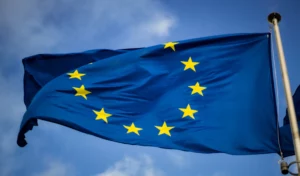
European Union: What Model in a Globalized World ?
The European Union is a leading global economy with a GDP of $16.4 trillion and strong trade and investment. It values human rights, democracy, EU’s economic and political impact.
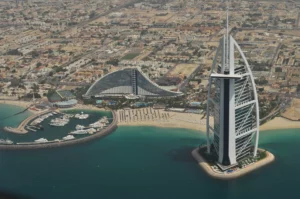
How’s Economic Development Redefining Middle East Geopolitics?
Discover the transformative impact of economic diversification on Middle East geopolitics, heralding a future of innovation, stability, and global engagement.
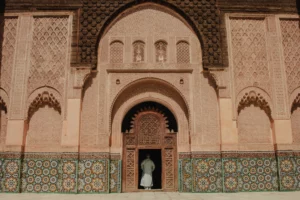
The Geopolitics of Morocco
Morocco, a North African country, has been striving to strengthen its international position through development.
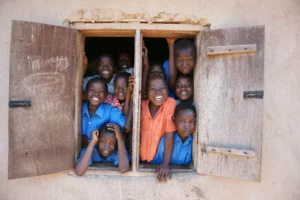
How’s African Territories Construction Shaping The Continent’s Future?
Unraveling the complexities of African Territories Construction, this article offers insights into its profound impact on Africa’s geopolitical and developmental trajectory.
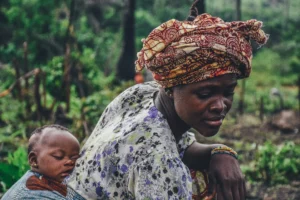
How Is African Geopolitics in 2024 Shaping the Continent’s Future?
Delve into the complexities of African geopolitics in 2024, where corruption, global influences, and regional conflicts dictate the path to stability and prosperity.
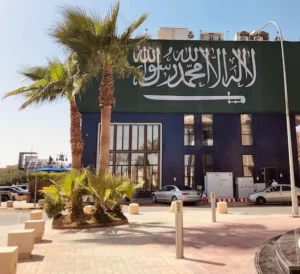
PetroDollar Paradigm Shift: Saudi Arabia in Talks to Join BRICS Bank
Breaking Boundaries: Saudi Arabia’s Potential Entry into the BRICS Bank Signals a PetroDollar Shift.
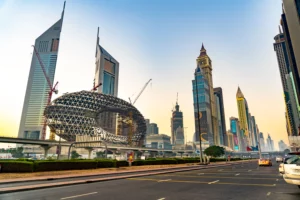
Redefining Power: The New Geopolitical Chessboard in the Middle East
Unveiling the Middle East’s Changing Political Landscape: China’s Rise, US Influence, and Global Implications.
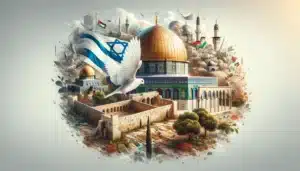
Can the Israeli-Palestinian Conflict Find a Path to Peace in 2024?
2024’s Israeli-Palestinian conflict sees heightened tensions and complex political dynamics. Delve into key events, societal impacts, and the evolving role of international actors, offering a critical perspective on the quest for peace in one of the world’s most enduring conflicts.


